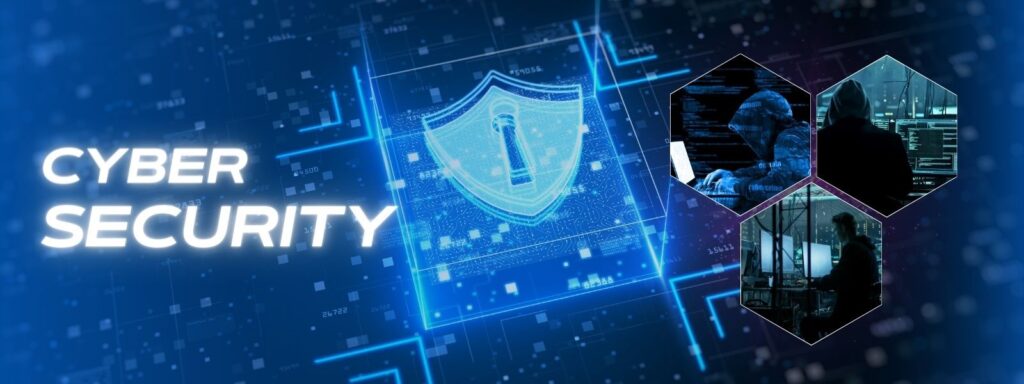Data theft and cyber-attacks are on the rise posing a serious need to defend against them. As businesses cannot stop their workflow, they must find ways to protect their IT infrastructure with efficient IT security.
Thankfully, we are in an era where constant efforts are being made to prevent the malicious acts of cyber attackers. With proper knowledge and skill, organizations can protect their identity and safeguard against financial or reputational damage. Fighting against cyber security threats is the need of the hour and only cyber security experts can handle it.
In this blog, we will understand all the aspects of cybersecurity, cyber security threats, and information security along with other concepts like cyber threat intelligence and audit.
Describing Cyber Security

Networks, systems, and programs are essential aspects for maintaining connectivity in an organization and carrying out all the tasks. That is why information security is crucial to protect sensitive data.
For a smooth flow of work, businesses maintain Information Technology infrastructures and they hold all the vital data. This data is sensitive and can be misused by third parties for their personal gain.
The idea of cyber security is basically a structured way to protect sensitive data from unauthorized use. According to IT Support in Tampa, new cyber threats emerge every day and mostly attack small and medium-sized businesses (SMBs) with limited cybersecurity budgets. However, considering deploying a managed cybersecurity tool can help prevent this by conducting assessments to identify gaps in your security and data management system and develop appropriate solutions.
Effective cyber security measures can withstand malicious cyber-attacks and save the organization from ransom, and reputational damage. Many organizations choose professional cyber security assistance from top cyber security companies.
Cyber Security vs Computer Security
There is no difference between cyber security and computer security.
The term Cyber is linked to computers or computer networks and their meaning is basically the same.
The aim of cyber security or computer security is to stop data breaches and save sensitive information. Some tools and techniques that help individuals and businesses deal with this issue without any hassle.
Different Types of Cyber Threats
Today, there are plenty of cyber threats and it is vital to know the types, take appropriate actions, and prevent them.
Ransomware
Ransomware introduces malware into the system and creates a barrier to limit user access. In order to get access, the user now needs to pay ransom to the threat actor.
Ransomware can be entered via computer networks implementing encryption to stop user access. Cyber-attacks get private access and only give it in exchange for money.
Distributed Denial of Service (DDoS) Attacks
DDoS attacks target the functioning of an organization over the internet. It introduces an overwhelming amount of traffic and distorts website speed while slowing the normal response time.
This acts as a distraction to further introduce malware into systems for a bigger attack for fraud and data breaches.
Phishing Attacks
This is a social engineering attack, here the cyber actors steal all types of data such as login credentials, credit card details and sensitive information.
Phishing attacks generally appear credible, compelling the user to open or respond to spam emails, or messages. This gives them access to information which they use illegitimately.
Corporate Account Takeover (CATO)
CATO is a much bigger type of cyber-attack as an entire business or organization is taken over by cybercriminals. Here the attackers steal a business identity, get unauthorized access, and extort money in the name of the company.
The severity of these cyber-attacks brings the essential need to initiate effective cybersecurity.
Need for Cyber Threat Intelligence
Cyber threat intelligence counters the rising cyber-attacks. It makes individuals aware of malpractices and introduces possible ways to prevent unauthorized use.
Not just that, it also provides tools to deal with such attacks and gives proper guidance after the attack has been imposed.
Taking precautions is always better for the overall safety of business as well as individuals. Usually, organizations don’t know how to handle this situation, so they can take help from cyber security companies and execute cyber threat intelligence efficiently.
Essential Cyber Security Safeguards
Cyber security is of different types, and they are:
Network Security
As the name suggests, Network security safeguards computer networks from unauthorized entry. Network security can be reinforced with firewalls, intrusion detection, intrusion prevention, and virtual private networks (VPNs).
Application Security
The essence of security lies in protecting various applications from cyber-attacks. Application security is done by firewalls, and effective security testing.
End-Point Security
End-point security protects systems such as computers, laptops, and smartphones from misuse and cyber threats.
Examples of end-point security include the installation of anti-virus software, (MDM) mobile device management solutions, and system protection platforms.
Cloud Security
An organization’s data is usually saved in cloud-based systems, and it is prone to unauthorized entry and wrongful use. That is why there is a need for cloud security as well. For this, businesses need cloud-based controls that cover all aspects such as intrusion, detection, and prevention. Cloud cyber security is a way to prevent damage to cloud systems and strengthen safeguards.
Bottom Line
Cyber security is essential and there is a strong need to create a strong foundation for a safe cyberspace.
Top cyber security companies can easily defy cyber threats with clear assistance and secure controls for their networks, and systems. Knowledgeable cyber security experts through their contribution can reinforce information security and defy cyber security threats.
Currently, there are many cyber security companies providing cyber solutions, IT security, threat intelligence, and much more.
Cyber Cops is one of the top cyber security companies with years of experience in this field. It brings knowledge, skill, and various certifications to handle your digital security requirements with overall efficiency. Other than that, it fosters productive cyber security audits, cyber threat intelligence, cloud computing security, and IT security.

